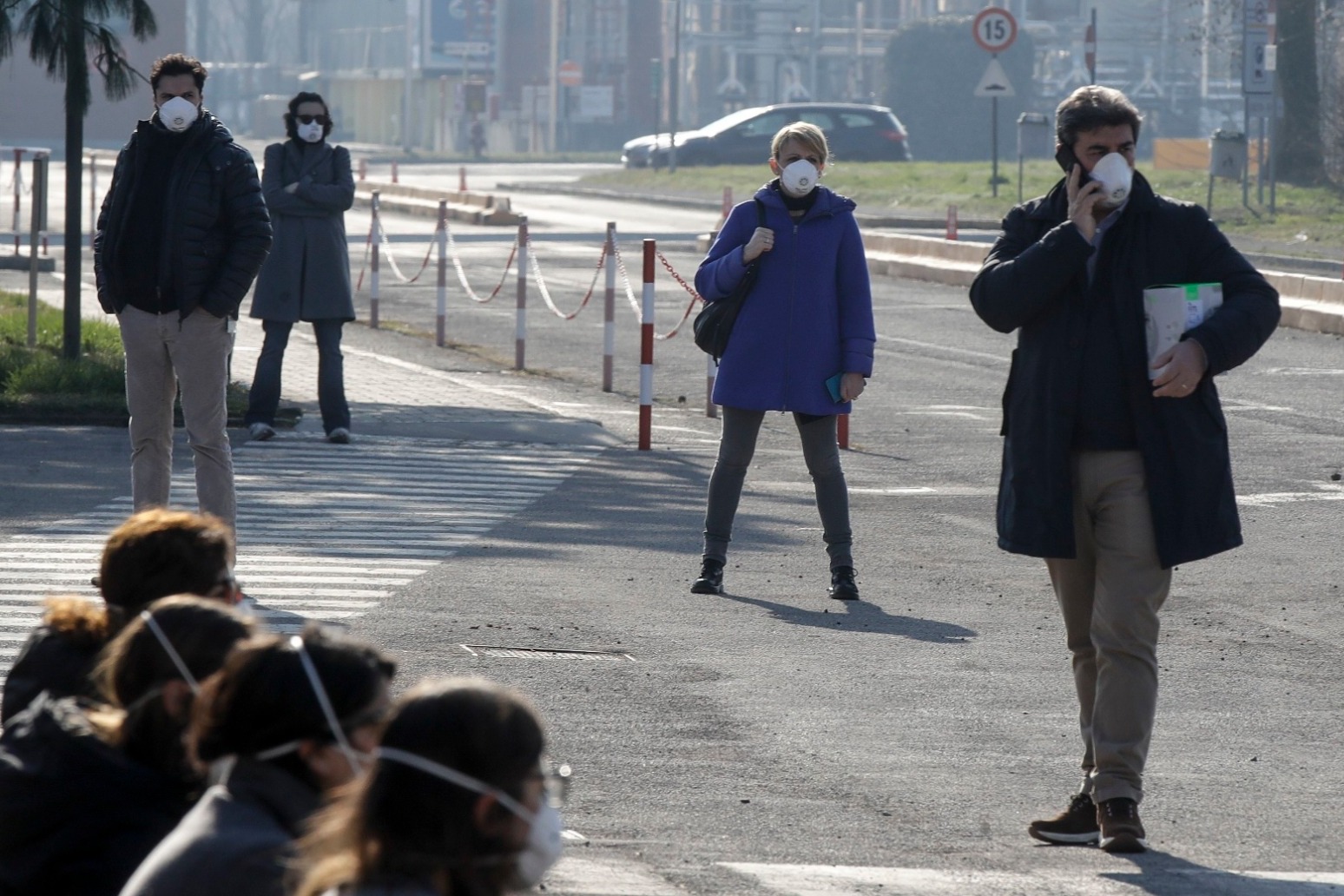
Towns in Northern Italy put in special measures over Covid-19 outbreak
A dozen northern Italian towns were subject to stringent measures on Saturday after Covid-19 claimed two lives and sickened an increasing number of people who had no direct links to the origin of the virus.
The secondary contagions prompted local authorities in towns in Lombardy and Veneto to order schools, businesses and restaurants closed, and to cancel sporting events and Masses.
The mayor of Milan, the business capital of Italy, shut down public offices.
Hundreds of residents and workers who came into contact with an estimated 54 people confirmed infected in Italy were in isolation pending test results.
Civil protection crews set up a tent camp outside a closed hospital in Veneto to screen medical staff for the virus.
In hard-hit Codogno, where the first patient of the northern cluster to fall ill was in critical condition, main street was practically a ghost town Saturday, with supermarkets, restaurants and businesses closed.
The few people out on the streets were wearing coveted face masks, which were nearly impossible to find in sold-out pharmacies.
The president of Lombardy, Attilio Fontana, said there were 39 confirmed cases in the region, where 10 towns received orders to suspend non-essential activities and services.
An elderly woman who died tested positive for the virus, though it wasn't clear if that is what caused her death.
The Veneto region reported 12 people with the virus, including a 78-year-old man who died late on Friday.
Two of the region's confirmed infections are in relatives of the man who died, Veneto regional president Luca Zaia said..
Mr Zaia said on Saturday that the contagion showed the virus is transmitted like any other flu and trying to pinpoint a single source of infection or one with direct links to China is no longer effective.
"You can get it from anyone," he told reporters.
"We can expect to have cases of patients who had no contact" with suspected carriers.
"While the virus isn't particularly lethal, it can be for the elderly or people with existing conditions, he said.
An initial ordinance penned by the health minister imposed an effective cordon on 10 Lombardy towns around Lodi, southeast of Milan, after Lombardy reported a quadrupling of cases on Friday.
But individual cities outside that core cordon area, such as Cremona, issued their own restrictions cancelling school after confirming their own cases.
The numbers of infected were in constant flux, but by Saturday had topped 25.
A press conference was planned later on Saturday to provide the most up-to-date figures.
Authorities urged calm, but acknowledged that the clusters were alarming given the secondary contagions.
The first man to be confirmed as infected in Lombardy had met with someone who had returned from China on January 21, but remains without symptoms.
The infected man worked at a Unilever plant near Codogno, and more than 100 of his colleagues were being kept in isolation pending test results.
In Rome, doctors at the Spallanzani infectious disease hospital reported some good news in the otherwise bleak day.
An Italian who tested positive for the virus two weeks ago is to be released, and a sickened Chinese tourist has tested negative for the first time.
Spallanzani had been caring for three patients for more than two weeks, Italy's only cases until the clusters emerged in the north on Friday.
Separately Saturday, 19 Italians who spent more than two weeks quarantined on a virus-stricken cruise liner in Japan landed at Rome's military Pratica di Mare airport.
They had been stranded on the Diamond Princess since February 5.
Following the first health checks and decontamination process, the passengers were transferred to the military campus of Cecchignola where they will spend a 14-day isolation period.
Published: by Radio NewsHub